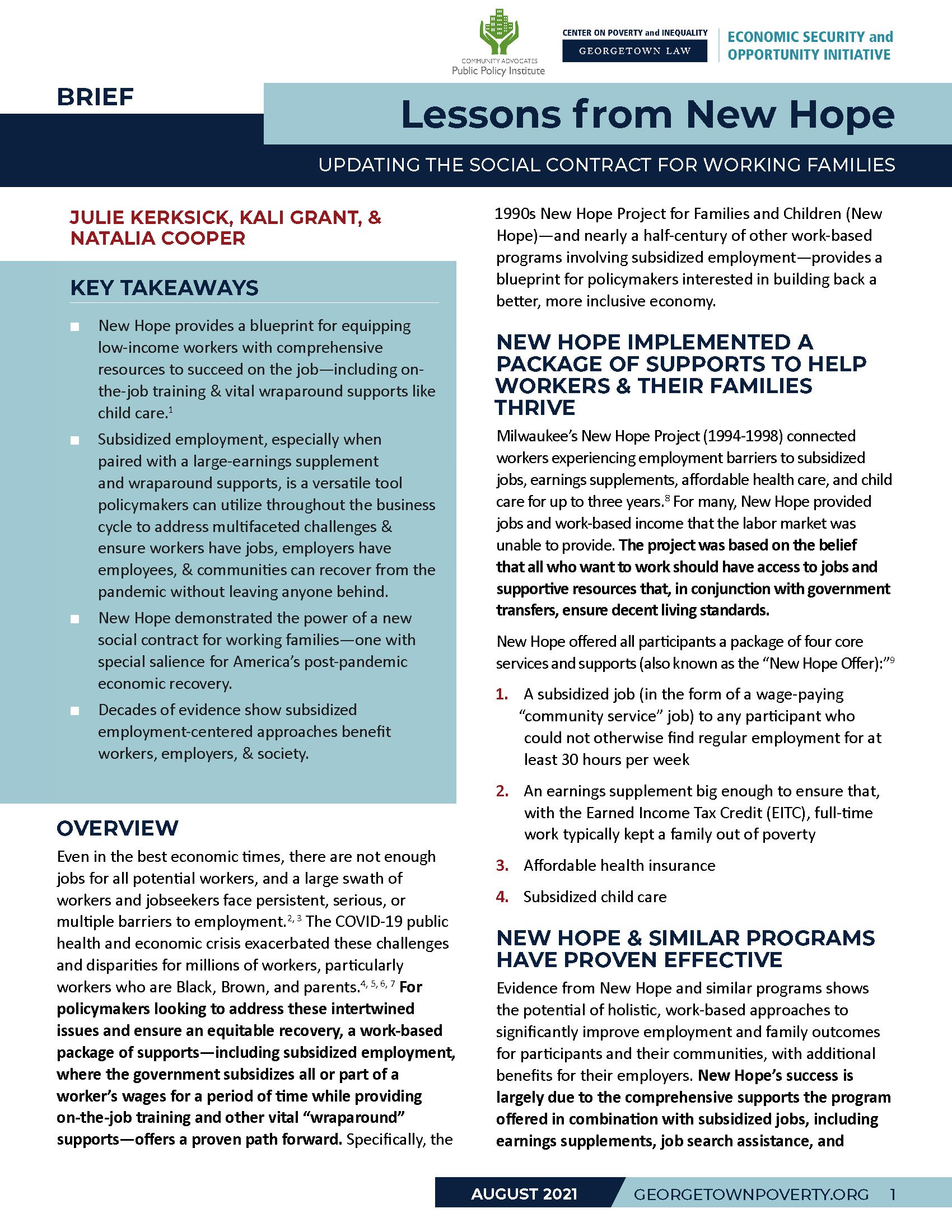The COVID-19 public health and economic crisis made employment more scarce and exacerbated long-standing challenges—like access to quality child care—for millions of workers, particularly workers who are Black and Brown. This brief, published in partnership with Community Advocates Public Policy Institute, shares the success story of Milwaukee’s New Hope Project—a program with a package of work-based supports that included subsidized jobs, earnings supplements, affordable health care, and child care. New Hope provides a blueprint for creating holistic, work-based approaches that significantly improve employment and family outcomes for participants and their communities, during the COVID-19 pandemic and beyond.
Key Takeaways
- New Hope provides a blueprint for equipping low-income workers with comprehensive resources to succeed on the job—including on-the-job training & vital wraparound supports like child care.
- Subsidized employment, especially when paired with a large-earnings supplement and wraparound supports, is a versatile tool policymakers can utilize throughout the business cycle to address multifaceted challenges & ensure workers have jobs, employers have employees, & communities can recover from the pandemic without leaving anyone behind.
- New Hope demonstrated the power of a new social contract for working families—one with special salience for America’s post-pandemic economic recovery.
- Decades of evidence show subsidized employment-centered approaches benefit workers, employers, & society.

